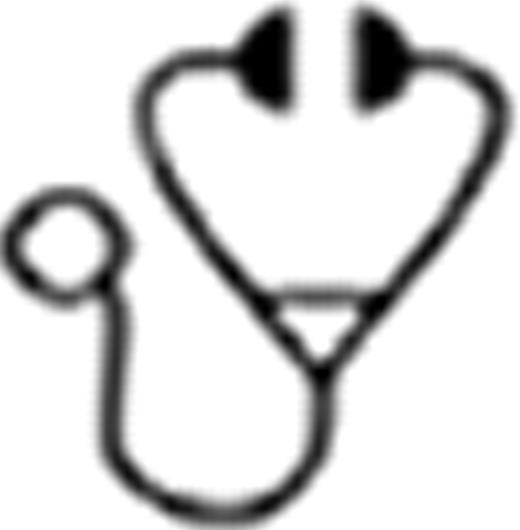Abstract
Historically, treatment options for the approximately 30% of patients with Hodgkin lymphoma (HL) who have primary refractory disease or relapse after experiencing initial response have been limited to high-dose chemotherapy with autologous hematopoietic stem cell transplant (AHSCT). Development of novel therapeutic options is needed to improve outcomes in patients whose disease is refractory to or relapses after initial chemotherapy or subsequent high-dose chemotherapy with AHSCT. The oral mammalian target of rapamycin inhibitor everolimus showed promising efficacy and acceptable toxicity in 19 patients with heavily pretreated HL enrolled in a phase 2 study of everolimus monotherapy for relapsed, rare lymphomas (Johnston et al. Am J Hematol 2010;85:320-4). To confirm the efficacy and safety of everolimus monotherapy in patients with relapsed/refractory classical HL, we conducted a multicenter, open-label, 2-step, phase 2 study.
Adults with classical HL that progressed after high-dose chemotherapy with AHSCT or a gemcitabine-, vinorelbine-, or vinblastine-containing regimen received everolimus 10 mg/day until disease progression or unacceptable toxicity. Response was assessed every 12 weeks via computed tomography with contrast or integrated positron emission tomography/computed tomography with contrast. The primary study endpoint was the overall response rate (ORR) evaluated according to the modified response criteria for malignant lymphoma (Cheson et al. J Clin Oncol 2007;25:579-86). Secondary endpoints included the disease control rate (DCR), duration of overall response, duration of disease control, progression-free survival (PFS), and safety.
A total of 57 patients were enrolled in this study; 57.9% were women, the median age was 32.0 years, 57.9% were pretreated with AHSCT, and 100% were pretreated with gemcitabine, vinorelbine, or vinblastine. Overall, 66.7% of patients experienced disease progression during previous therapies or discontinued previous treatment due to progression. At the time of analysis, 48 patients discontinued study treatment, most commonly due to disease progression (n = 25). The ORR and DCR were 42.1% and 77.2%, respectively (Table). The median time to response was 57 days. Median PFS was 9.0 months. Adverse events experienced by >25% of patients were fatigue (56.1%), thrombocytopenia (47.4%), cough (38.6%), rash (38.6%), pyrexia (31.6%), anemia (29.8%), dyspnea (28.1%), back pain (26.3%), and diarrhea (26.3%). Grade 3/4 adverse events were observed in 33 patients (57.9%); the most common were thrombocytopenia (21.1%) and anemia (12.3%). Stomatitis was experienced by 14 patients (24.6%) and was of grade 3 severity in 2 patients (3.5%). Pneumonitis was observed in 6 patients (10.5%) and was of grade 1 severity in 2 patients (3.5%) and grade 2 severity in 4 patients (7.0%).
In this phase 2 study, everolimus monotherapy demonstrated favorable efficacy and a short time to response in patients with heavily pretreated, relapsed/refractory classical HL. The overall safety profile was consistent with that previously observed for everolimus in patients with HL and other cancers. The results of this study confirm previous results and support the further evaluation of everolimus in patients with classical HL.
| Best overall response, n (%) . | Everolimus 10 mg/day N = 57 . |
|---|---|
| Complete response* (CR) | 5 (8.8) |
| Partial response (PR) | 19 (33.3) |
| Stable disease (SD) | 20 (35.1) |
| Progressive disease | 8 (14.0) |
| Unknown | 5 (8.8) |
| ORR (CR + PR) | 24 (42.1) |
| DCR (CR + PR + SD) | 44 (77.2) |
| Best overall response, n (%) . | Everolimus 10 mg/day N = 57 . |
|---|---|
| Complete response* (CR) | 5 (8.8) |
| Partial response (PR) | 19 (33.3) |
| Stable disease (SD) | 20 (35.1) |
| Progressive disease | 8 (14.0) |
| Unknown | 5 (8.8) |
| ORR (CR + PR) | 24 (42.1) |
| DCR (CR + PR + SD) | 44 (77.2) |
Defined as resolution of all adenopathy.
Johnston:Novartis: Consultancy. Off Label Use: Everolimus is an mTOR inhibitor indicated in the US for the treatment of postmenopausal women with advanced hormone receptor-positive, HER2-negative breast cancer in combination with letrozole after failure of letrozole or anastrozole; adults with progressive pancreatic neuroendocrine tumors that are unresectable, locally advanced, or metastatic; adults with advanced renal cell carcinoma after failure of treatment with sunitinib or sorafenib; adults with renal angiomyolipoma and tuberous sclerosis complex not requiring immediate surgery; and adults and children aged 3 years or greater with subependymal giant cell astrocytoma associated with tuberous sclerosis complex who require therapeutic intervention but are not candidates for curative surgical resection. Pinter-Brown:Millennium: Consultancy. Rogerio:Novartis: Employment; Novartis: Equity Ownership. Warsi:Novartis: Employment; Novartis: Equity Ownership. Chau:Novartis: Employment. Ramchandren:Seattle Genetics: Honoraria.

This icon denotes a clinically relevant abstract
Author notes
Asterisk with author names denotes non-ASH members.

